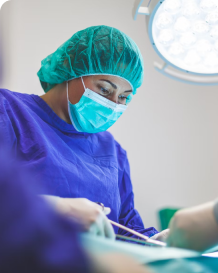Learn All About Sublingual Gland Removal Surgery in Mandsaur
Sublingual gland removal surgery involves the surgical excision of the sublingual salivary gland to address various medical conditions. Find out more about the procedures in Mandsaur. Sublingual gland removal surgery involves the surgical excision of the sublingual salivary gland to address various medical conditions. Find out more about the procedures in Mandsaur.
Happy patients
 50+
50+
Expert surgeons
Personal Assistance







